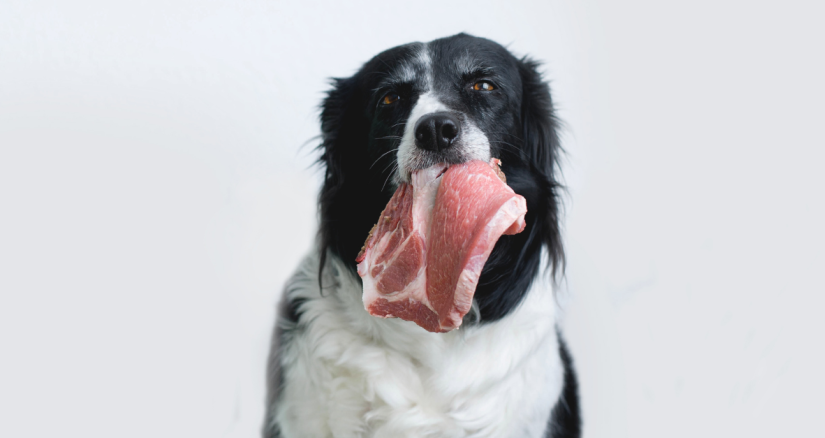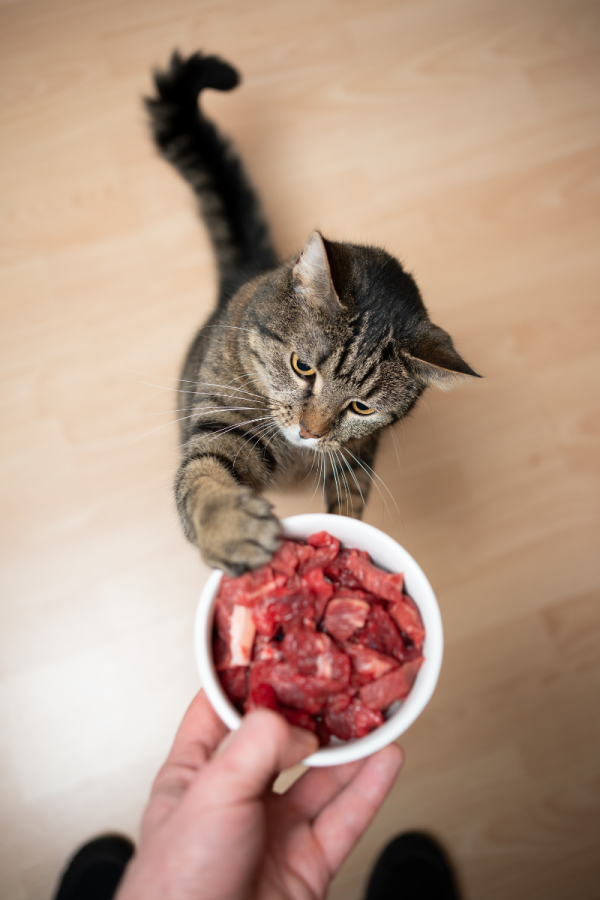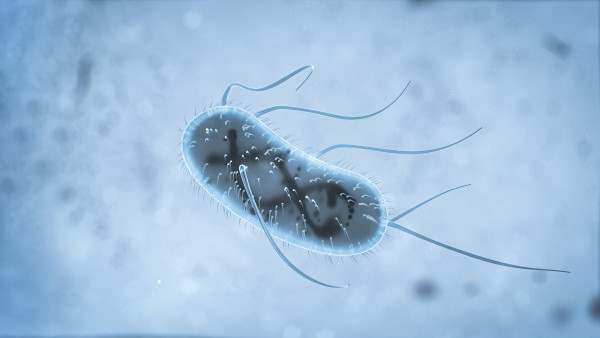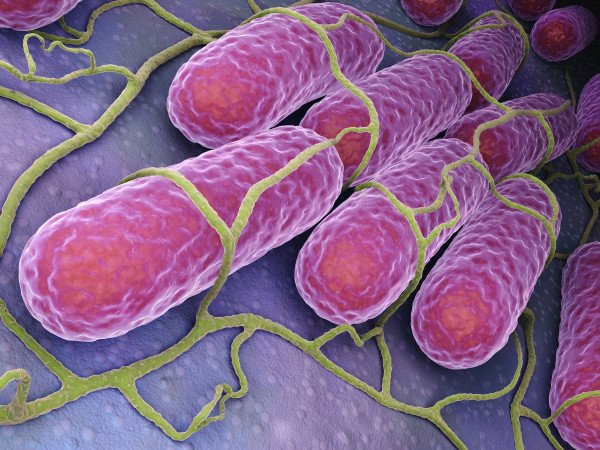
One Rotten Apple: How Darwin’s Raw Pet Food Has Put the Entire Raw Feeding Movement in Peril
The raw pet food business has long been operating with a kind of mission: to give pets “biologically appropriate,” minimally processed meals that are believed to foster gut health, coat condition, and general vitality. As a vet, I've personally observed how remarkably well some patients do on raw food diets. When done right and handled responsibly, raw feeding may be a good choice for some pets and pet parents who are willing to assume the risks and take precautions at home.
But recent developments about Darwin’s Natural Pet Products (Arrow Reliance) have transformed the narrative from cautious optimism to urgent concern. Over the past several years, Darwin’s has been the subject of multiple FDA advisories, and what’s most troubling is not that contamination has occurred (it can happen to any manufacturer), but that Darwin’s has repeatedly refused to issue voluntary recalls, even in the face of serious human and animal health risks.
Voluntary vs. Mandatory Recalls: What’s the Difference?
Not all recalls are created equal, and understanding the difference helps clarify why the Darwin’s situation is so serious. Most pet food recalls are voluntary, meaning the company itself chooses to remove a product from the market after being notified of a potential issue or test result. The FDA typically encourages this cooperation because it allows for quick action and demonstrates corporate responsibility.
A mandatory recall, on the other hand, is ordered by the FDA under its authority through the Food Safety Modernization Act (FSMA) when a company refuses to act voluntarily and there’s a reasonable probability the food could cause serious health consequences or even death. Before issuing a mandatory recall, the FDA must first give the company a chance to comply voluntarily. Only when that fails does the agency exercise this authority a step that’s rare, and one it has not yet used in the Darwin’s case.

Photo by Nils Jacobi (Getty Images)
Multiple FDA Advisories: A Troubling Pattern
Let’s be clear: recalls happen. Whether it’s raw, kibble, canned, or freeze-dried, every pet food format carries risk. What matters is what brands do after an issue occurs. Are they transparent? Do they disclose the information promptly to the public? Do they work with the authorities and try to make sure the problem does not happen again?
In Darwin’s case, the repeated patterns of contamination, in conjunction with minimal transparency and resistance to recalls, are huge red flags.
Formal FDA Warning Letters
This is among the gravest ways the FDA can communicate directly to a company. It often comes in the wake of an inspection that has turned up violations like Salmonella or Listeria in products, unapproved additives, or unsanitary production. The letter does not by itself mandate a recall, but it represents a formal request for corrective action and provides the company with a clear deadline to respond.
- April 2018: The FDA sent out a warning letter to Darwin’s after several inspections in late 2017 and early 2018 revealed that the company's raw pet food was contaminated with Salmonella, Listeria, and E. coli. Darwin’s recalled those lots. As this was a warning letter regarding noteworthy contamination, the recall was a vouluntary Class I (most serious). Darwin’s was also supposed to research the causes of contamination as part of the recall.
- February 2023: A second warning letter was issued following a subsequent inspection in 2022. It listed infractions that included Salmonella contamination, adding an unapproved animal food additive (peroxyacetic acid) and the company’s failure to register its facility with the FDA.
FDA Public Advisories and Cautions
In contarast, a public advisory is not targeted at the company, but rather at pet owners and the general public. These notices are issued when the FDA’s testing of retail products or samples obtained from pet owners show contamination or another safety risk. And because the products may already be in people’s homes, the FDA will step in to warn consumers directly.
Advisories often suggest the company should voluntarily recall the product, or, minimally, advise consumers to throw it out securely. Crucially, these notices cannot compel a recall; it’s up to companies to take the next responsible step. The FDA has released several advisories and public warnings about Darwin’s products, as it is said that the company insisted on not doing a voluntary recall. Examples include:
- March 2019: The FDA alerted the public after the company did not inform customers that their raw dog food products had been recalled, this time three lots because of Salmonella contamination. Darwin acknowledged the advisory. They managed with emails to send product lot details to impacted customers and also ramped up their safety procedures. But the company did not officially recall those lots in the public record.
- August 2022: The FDA cautioned pet owners not to give their cats some lots of Darwin’s raw cat food that tested positive for Salmonella. Lots in question were eventually linked to illnesses in three kittens that were living in the same home. Yet, Darwin’s did not issue a recall.
- September 2024: The FDA issued an advisory for multiple lots of cat and dog food that were found to be contaminated by Salmonella and Listeria. According to dvm360 and PetFoodIndustry, Darwin’s notified customers about the affected lots, discontinued shipping for possibly affected lots when they were informed by the FDA, and received no customer complaints regarding these particular lots. Additionally, the company pushed back against the regulatory logic underlying the FDA and USDA’s “zero-tolerance” policy for Listeria monocytogenes, noting that some tests came back as positive only after a prolonged incubation period and stating that its antimicrobial treatments and sourcing of ingredients are up to high standards.
- July 2025: An FDA advisory was issued about feeding some lots of Darwin’s pet food because they may have been contaminated with E. coli O157:H7 and Salmonella. The E. coli was associated with a severe illness in a child. Darwin’s has not yet recalled the beef, chicken, and duck lots in question. The FDA warning specifically points out that the company refused to issue a recall.
- September 2025: The most recent FDA advisory warned consumers not to feed specific lots after FDA testing confirmed contamination with both Salmonella and Listeria. While Darwin’s reportedly notified some customers of a product withdrawal, the agency stated that the company had not provided sufficient documentation to verify that all affected products were removed from circulation.

Photo by mahirkart
The Ripple Effect: Safety Advocates Sound the Alarm
This is no longer just a company problem; it’s a public health and industry trust crisis.
First, there is the issue of human and animal health risk. The FDA emphasizes that contaminated raw pet food poses risks for humans (especially children and immunocompromised individuals) through direct contact or cross-contamination. Similar to humans, pets (especially young, old, or immunocompromised) are more at risk. Even though a pet may appear to be symptom-free, it can shed pathogens, increasing the risk of human exposure to these bacteria.
Second, this series of events portrays frustrations around the way pet food is regulated. It is difficult to understand why the FDA has not demanded recalls or more enforcement, given repeated violations and a risk of human and pet illness. Moreover, legal experts and food safety advocates are openly wondering the same thing, too.
And lastly, Darwin’s damage has placed the entire raw pet food category on the chopping block. Other brands are being caught in the crosshairs as some leverage Darwin’s actions (or lack thereof) to vility raw feeding in general. Meanwhile, even brands that are taking precautionary steps such as testing, transparency, and validated kill steps for safer food, are facing the danger of being stigmatized in the press, in regulation, and in consumer perception.
One Rotten Apple Spoils the Bunch
Never was such a line truer than in this instance. Darwin’s has refused to voluntarily recall contaminated products even after there was clear evidence of risk as demonstareated by the illnesses accociated with their products, and what internal changes, if any, it actually may have made are unknown. In addition, they are still shown year-on-year to have evidence of products contaminated with pathogenic bacteria. Factors such as these have conspired to make the modern consumer more food safety conscious than ever, and that heightened awareness includes increased expectations for accountability, strict safety management systems, and open communication. When brands stumble, they risk not just the gaze of regulators but also of veterinarians, retailers, and pet parents.
In the meantime, many of the responsible raw pet food companies are focused on doing things safely by releasing their microbial testing results, implementing technologies such as high-pressure processing (HPP), and ramping up preventive control programs. But these are at risk of being eclipsed if public opinion comes to conclude that all raw feeding is unsafe.

Photo by iLexx
What Raw Pet Food Producers Must Do
In order to safeguard both public safety and the integrity of raw feeding for good, it's time for responsible brands to draw a line in the sand between themselves and companies that risk public health by taking shortcuts with safety or falling back on brand image over consumer trust. This is not only about protecting an image for professionalism, but it's also about showing that raw feeding can be done safely and responsibly. That takes dedication to best practices in manufacturing, quality control, and communication. This means proactively recalling contaminated product even when it’s voluntary.
- Voluntarily recall tainted product before it even becomes necessary. Waiting on a mandatory recall following an FDA advisory is not only irresponsible; it’s dangerous. Voluntary recalls communicate in no uncertain terms that the safety of pets and their owners takes precedence over sales, and they cultivate enduring trust among customers and with veterinary professionals as well.
- Test every batch using third-party accredited laboratories. There is absolutely no debating the importance of standard microbial testing (Salmonella, Listeria monocytogenes, E. coli O157:H7) but don’t just trust in-house QA systems or infrequent audits objectivity, credibility, and traceability are realized by the third-party verification.
- Educate and train all manufacturing employees about food safety, HACCP protocols, and sanitation. A safe product begins with a well-trained team. In that production chain, from line workers to quality assurance managers, everybody should understand hazard analysis, critical control points, the cleaning and disinfection plan, and how to handle high-risk ingredients safely. Food safety culture needs to be part of company culture, not just a regulatory check box.
- Be transparent with customers, veterinarians, and regulators. When an issue does arise, brands should be transparent and not spin the truth. Honest, clear, and timely communication assists pet parents and professionals in making informed decisions. It also suggests the brand is prioritizing accountability over appearances. That means openly discussing recalls, testing failures, safety improvements, and even where you are changing sources.
- Back common-sense regulation that holds people accountable for their actions and prevents dangerous products from reaching the market. Raw food manufacturers should not be fighting regulation; they should be demanding smart regulation that sets the standard for everyone. For example, a responsible raw pet food manufacturer might actively support FDA guidance requiring validated pathogen kill steps (such as HPP) or third-party microbial testing before product release. They could also endorse mandatory reporting of positive Salmonella or Listeria results to ensure transparency across all manufacturers, rather than leaving safety to voluntary disclosure. They should advocate for better standards that create a clearer distinction between responsible brands and those that cut corners.
Partnering for Safety and Trust
Developing and sustaining strong food safety systems requires not only technical knowledge but also clear communication with regulators, veterinarians, and consumers. That’s where BSM Partners can be of assistance. Our Food Safety, Quality Assurance, and Regulatory (FSQAR) and Veterinary Services teams works alongside pet food makers to enhance all levels of safety and trust. We can even help with root-cause analysis when contamination occurs, get companies working on practical corrective actions that work, and drive in a long-term food safety culture across the company. To support more than just technical systems, we’ve helped brands refine their education and messaging strategies, allowing them to communicate with both pet parents and veterinary professionals confidently and transparently.
Preparation counts when the FDA comes knocking. When companies are inspected and investigated by the FDA, we help keep teams calm but focused on science-based expertise as they navigate the process to produce thorough, timely responses that are credible. And most importantly, we help brands be more resilient by not just reacting when problems arise but preventing them with strong HACCP plans, validated kill steps like HPP and staff training to ensure safety remain front and center.
By electing to work with BSM Partners, raw pet food companies can show regulators, veterinarians, and consumers that they takes safety seriously—not just because it’s a requirement, but because it is the right thing to do. We can work together to keep public health safe, protect our pets, and protect everyone who makes raw feeding possible.
Follow us on LinkedIn for the latest updates on all things happening here at BSM Partners.
About the Author
Dr. Katy Miller works as the Director of Veterinary Services at BSM Partners. She earned her veterinary degree at Ross University and completed her clinical year at Louisiana State University. She previously served for 11 years as the Director of Dog and Cat Health and Nutrition for Mud Bay where she earned multiple certifications and specialized in pet food nutrition, prior to which she practiced general and emergency medicine for seven years. She is also a competitive three-day eventer, licensed falconer, and claims only two (Golden and Mini Doxie) of their nine dogs.
This content is the property of BSM Partners. Reproduction or retransmission or repurposing of any portion of this content is expressly prohibited without the approval of BSM Partners and is governed by the terms and conditions explained here.